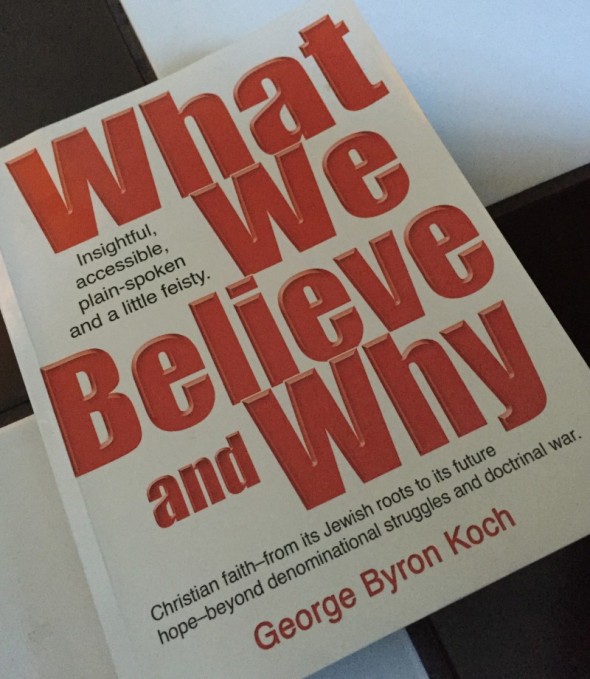
Transcendent Love
Editor’s note. The following is a compilation of Rev. George Byron Koch’s writings from his book, What We Believe and Why. What We Believe and Why started out as a teaching/sermon series for Koch’s own congregation and developed over the course of years into an insightful, plain-spoken and “feisty” book about the Christian faith. After reading the book, I’d say Koch summarizes his entire content well on page 240 when he says, echoing 1st Corinthians, that “Believing the right things is worthless when we are loveless. Faith is empty when it is without love.” And the question he poses at the end of the portions I selected and put together here from chapter 12 (“Obedience and Love”) and chapter 23 (“Reconciliation”) is one I think anyone connected with Q Place is challenged by and looking to answer with their life. – Pamela Klein
God’s concern is always about LOVE, always about loving relationship, always about building up and not harming. It is not about the mere fulfillment of obligations, of following religious rules, behaviors, rituals, practices or morality. In fact, these often are substituted for love, out of a desire to please or control God, to impose one’s will on others, or because the challenge of love is too great. “Following the rules” replaces love. But true love transcends the rules and gives us freedom from them.
I don’t know about you, but this is very scary to me. It is much easier for me to try to follow, apply and impose rules all the time. The rules were there for a reason. They helped us understand right from wrong. But the true love that allows us to live as God desires us to live requires transcendence. And it calls us to freedom.
Love is transcendent, it comes from the Source of our creation, and it approaches people and circumstances with a heavenly view, not just a worldly one. Where the Pharisees saw a prostitute, Jesus saw a woman needing the love of God; where those who would stone an adulteress saw the law violated, Jesus gave freedom from condemnation. Where others saw a despised tax collector, or a Samaritan, or a blind man, or a demon-possessed man, or sick or dead, Jesus saw His beloved children, and His love brushed aside the judgements of men, invaded this kingdom of earth and its laws (even the laws of time and space), and revealed the transcendent love of the Kingdom of God.
It is to this that you are called.
Again and again, in countless ways, in specific exhortations and in parables, in healings and declarations of forgiveness and love for even the most despised, Jesus teaches and demonstrates to us that people matter. Yet we have so elevated Doctrine and our divisions and disagreements—and who’s “in” and who’s “out” as a result—that love of neighbor simply is set aside when our [own modern versions of the law] are at risk. Things outweigh people.
How do we escape this error?
George Byron Koch
Pastor and Teacher

this is such a challenge, particularly in our country. why do people “love” to align themselves with an ideology and miss the opportunity to come alongside the people caught up in that debate?